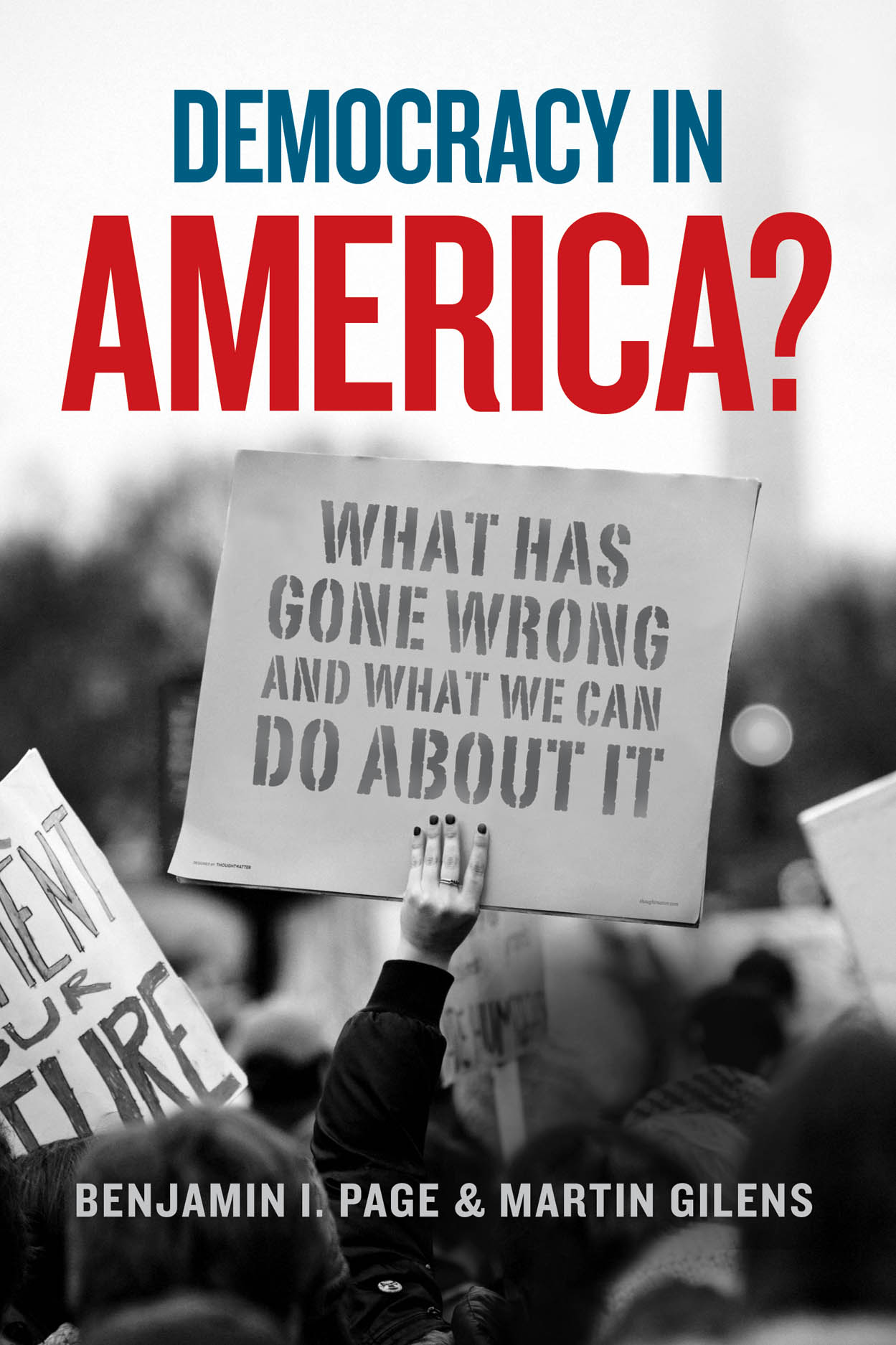Author Interview: Benjamin I. Page and Martin Gilens
 The last election cycle brought the process of assigning votes under the electoral college renewed scrutiny, while also highlighting the susceptibility of the American voting public to propagandistic appeals, and turning attention to the extreme amount of influence of wealthy corporations and wealthy individuals on both sides of the aisle. These, among other factors, are seen by many as increasingly dire threats to the core values of the American democratic voting system, threats that, if left unchecked, have the potential to grow exponentially in relation to the wealthy’s bank accounts in what Jared Bernstein describes, in a recent interview with political scientists Benjamin I. Page and Martin Gilens, as a kind of “self-reinforcing cycle, where wealth concentration drives political outcomes that enrich and strengthen the donor class while blocking policies that would push the other way.”
The last election cycle brought the process of assigning votes under the electoral college renewed scrutiny, while also highlighting the susceptibility of the American voting public to propagandistic appeals, and turning attention to the extreme amount of influence of wealthy corporations and wealthy individuals on both sides of the aisle. These, among other factors, are seen by many as increasingly dire threats to the core values of the American democratic voting system, threats that, if left unchecked, have the potential to grow exponentially in relation to the wealthy’s bank accounts in what Jared Bernstein describes, in a recent interview with political scientists Benjamin I. Page and Martin Gilens, as a kind of “self-reinforcing cycle, where wealth concentration drives political outcomes that enrich and strengthen the donor class while blocking policies that would push the other way.”
But is it too late? Has our democracy reached the same tipping point as our climate? Has this feedback loop already snowballed into an unstoppable avalanche whose path cuts straight through our most sacred American democratic values? Are we already secretly but not-so-secretly living under a plutocratic system and everybody knows it but nobody says anything because they just don’t want to seem unpatriotic or whatever? AAAAHAAahh I’ve had too much coffee already today to be thinking about this especially at three pm on a Friday!
But thankfully I’ve switched to mint tea, my colleagues commute mostly using public transportation or drive Priuses, and in the interview Page and Gilens offer a rather comforting glimmer of hope really, the entirety of which can be read on the Washington Post website:
“This sort of downward spiral is a huge concern. But we do not believe it will go on forever. It makes people very angry. If popular anger is organized correctly toward the right ends, good things can happen and the spiral can be reversed. The People’s party of the 1890s and the Progressives won direct election of senators, voting rights for women, rights for workers and an income tax on the rich. The labor movement fought back against repression and — for a while — exerted countervailing power against the political influence of corporations. The women’s movement, the civil rights movement and many other popular movements have achieved great things. We believe that a social movement for justice and democracy is coming into existence now and that it has the potential to make the United States much more democratic.”
Check out more about Page and Gilens new book Democracy in America? on the University of Chicago Press website.